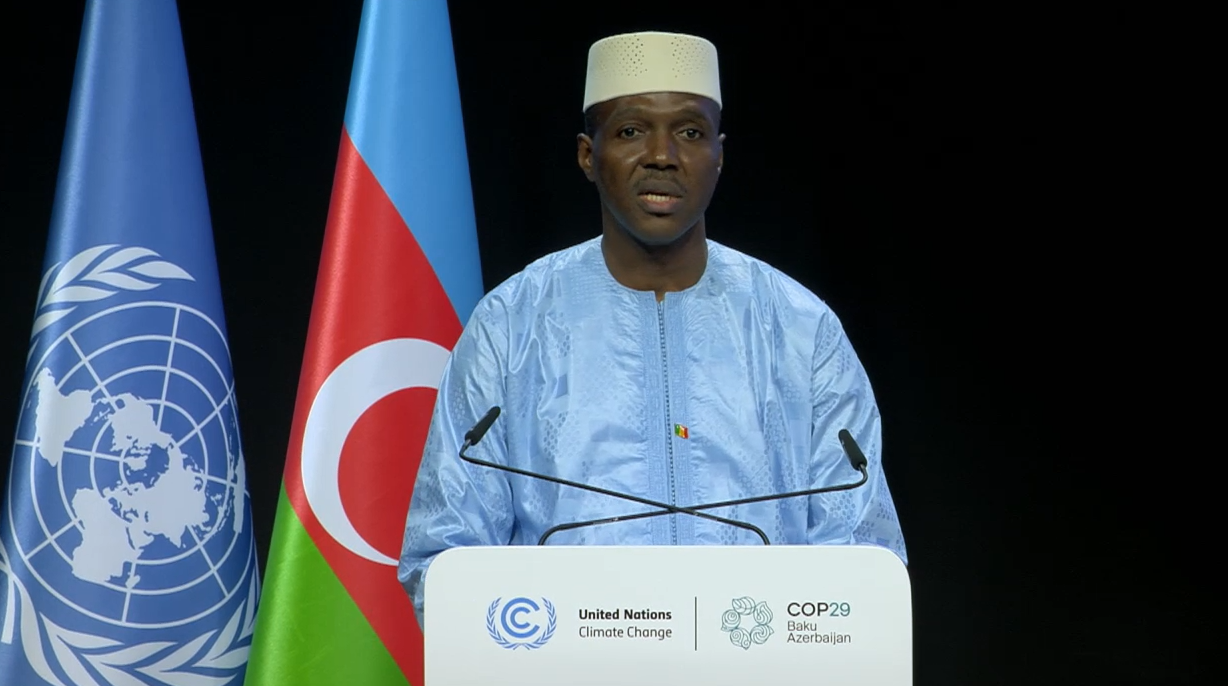BAKU, Azerbaijan, November 19. Mali is taking active steps to adapt to changing climate conditions and mitigate their impacts, the country's Minister of State, the government spokesman Abdoulaye Maiga said in the national statement at the COP29 summit today, Trend reports.
Maiga stressed that climate change is particularly acute in Mali, where much of the territory is prone to desertification; frequent floods and droughts result in significant losses, both material and human, and threaten food security.
"We are fully aware of the scale of the threat and are committed to taking action. Our country is already implementing an action plan, which includes large-scale afforestation, the restoration of degraded lands, and the construction of solar power plants," the minister pointed out.
According to him, key initiatives include the annual greening of 100,000 hectares, the rehabilitation of the Niger and Senegal rivers, as well as the creation of 150,000 hectares of forested areas.
As part of the transition to renewable energy, four solar power plants with a total capacity of 400 megawatts are planned to be launched in 2024, increasing the share of green energy in the country's overall energy mix by more than 10 percent by 2030, the official explained.
Maiga urged the international community to intensify efforts to combat climate change, emphasizing that Africa, which contributes only four percent of global emissions, disproportionately suffers from the impacts of climate change.
"We expect the largest polluters to fulfill their climate financing commitments. We need not only words but real actions," the minister added.
To note, the 29th session of the Conference of the Parties to the UN Framework Convention on Climate Change (COP29), which will run until November 22, opened at the Baku Olympic Stadium on November 11. It is the largest event organized by Azerbaijan to date, and the first time in the region that it is being held in Azerbaijan.
Within COP29, the highest-level event - the summit of world leaders on climate action - was held on November 12–13.
The main expectation from COP29 is to agree on a fair and ambitious New Collective Quantitative Goal (NCQG) on climate finance. The COP29 chairmanship has launched 14 initiatives that include linkages between climate action and the Sustainable Development Goals, including green energy corridors, green energy storage, harmony for climate resilience, clean hydrogen, methane reduction in organic waste, action on green digital technologies, and other topics.
In addition to being a top priority that creates the conditions for action, creating climate finance will also help fulfill the 1.5°C pledge by bringing everyone together.
The UN Framework Convention on Climate Change is an agreement signed at the Rio Earth Summit in June 1992 to prevent dangerous human interference in the climate system. The acronym COP (Conference of Parties) stands for “Conference of Parties” and is the highest legislative body overseeing the implementation of the Framework Convention on Climate Change.
A total of 198 countries are parties to the Convention. Unless otherwise decided by the parties, COP is held annually. The first COP event was held in March 1995 in Berlin, and its secretariat is located in Bonn.
Stay up-to-date with more news on Trend News Agency's WhatsApp channel







